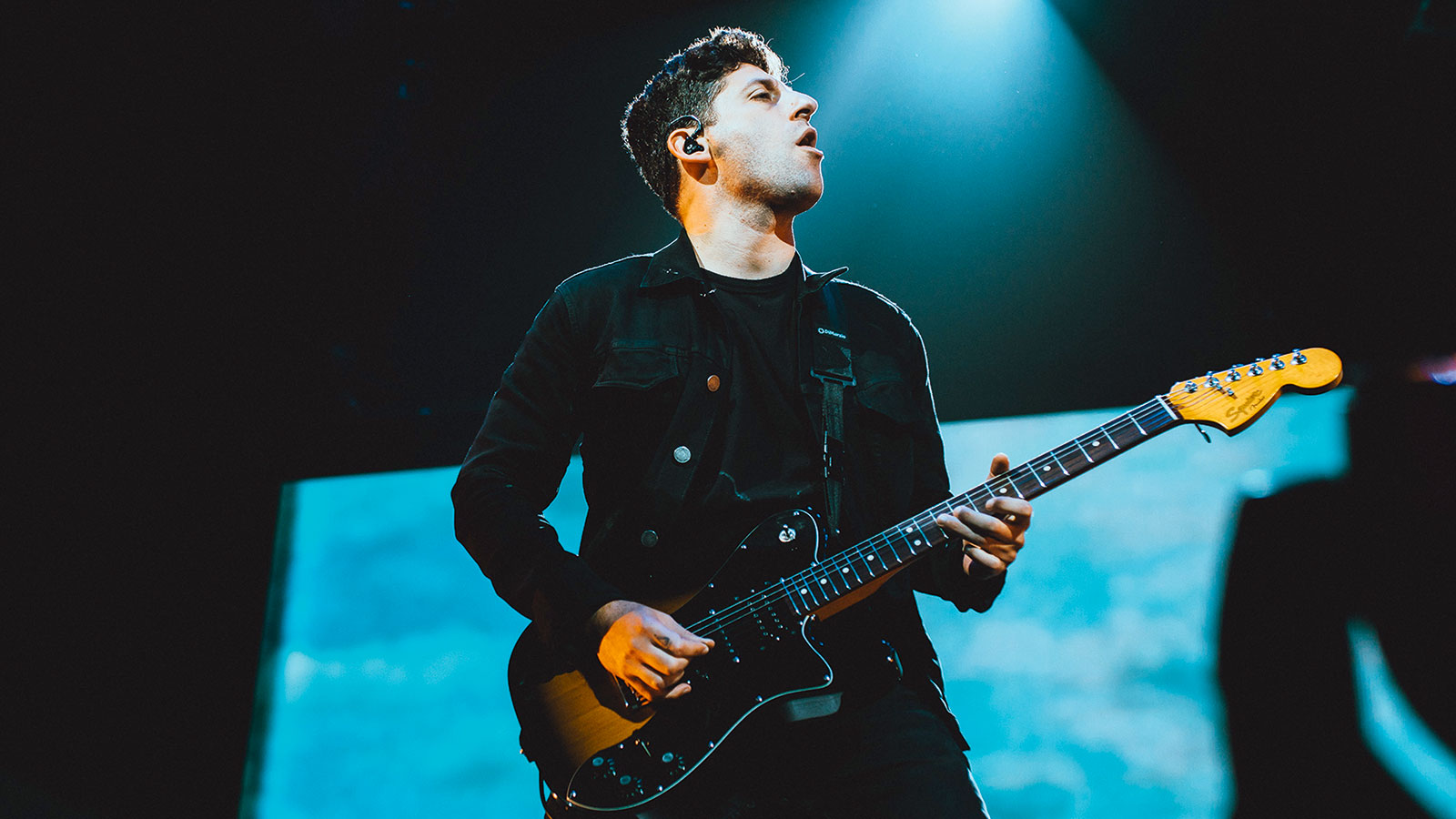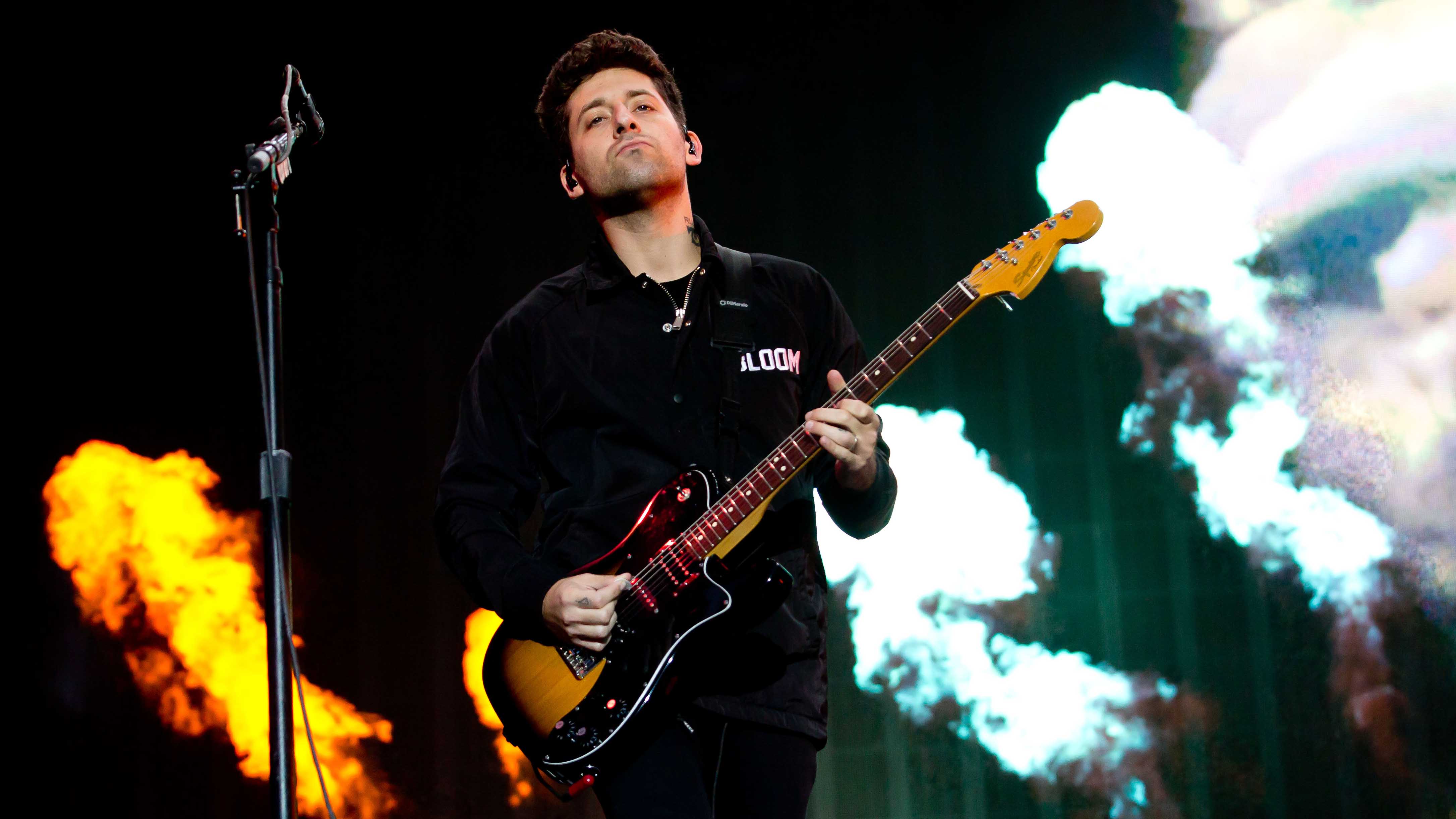5 minutes alone - Fall Out Boy's Joe Trohman: “It’s better to have an identity than be the world’s ultimate shredder”
The guitarist talks versatility, learning the classics and why you should always warm up

Fall Out Boy axeman Joe Trohman on giving up the trombone, his biggest playing weakness and starting a band with one of his all-time guitar heroes...
I got my first real six-string...
“I originally played trombone in the school band but I wanted to play guitar. I was a bad student, so at 10 my dad said, ‘If you get all Bs, I will buy you a guitar!’ So I got a Harmony-Barclay Bobcat with a matching amp, probably costing around $50 for both! Junk guitars are very cool now but I wanted a real guitar like a Strat copy, so I moved onto a Squier.”
There goes my hero

“I was lucky to grow up in the 90s, with all those brilliant rock bands dominating the radio - from Smashing Pumpkins to Nirvana, The Jesus Lizard and Soundgarden... but when I got into guitar, I was really into the classics.
“In my first lesson, I asked to be taught Purple Haze and Kick Out The Jams, but I must admit Mike Campbell from The Heartbreakers was the one for me. I remember when Mary Jane’s Last Dance came out and my dad took me to see them in Cleveland, which was my first ever concert. He’s one of the greatest ever guitar players/songwriters.”
I’m hot for teacher
“If could have a lesson with anyone alive, I’d pick David Gilmour. He’s the king of restrained playing. I’ve seen the making of Dark Side Of The Moon documentary loads of times where everyone replays their parts and he does his exactly like the originals.
“That’s a skill... it’s so different to Led Zeppelin, where it was more freeform. No-one except for maybe John Paul Jones would play exactly the same every time. I would love to sit with David and find out about his tricks and approach!”
Caught in a mosh
“I’ve played in The Damned Things with Scott Ian from Anthrax. That guy has a signature sound, you can hear those chugs and instantly know it’s him. He is someone I grew up admiring - and he taught me that if you have a style that you are comfortable with, trust it and stick with it.
Get the MusicRadar Newsletter
Want all the hottest music and gear news, reviews, deals, features and more, direct to your inbox? Sign up here.
“I think it’s so easy to question yourself. People might say you are doing it wrong, but those are the people that have no identity. It’s better to have an identity than be the world’s ultimate shredder!”
The one that got away
“When I lived in New York, the mentality was to purge your stuff and live in a shoebox. So I had a storage space in Brooklyn, another in Chicago, plus the band storage in California... there was so much shit.
“I had this 1980 Flying V with a flame top that sounded cool as fuck, but I never played it standing up - always sitting down which was uncomfortable, so I sold it. When I moved to LA, I went to the storage space and thought someone had stolen because I’d forgotten I sold it... I was so bummed out. Then I realised how fucking dumb I was!”
Jekyll And Hyde
“My biggest weakness is never forcing myself to practise. I don’t warm up, either... I just go onstage and warm up while I am playing, which is probably a bad idea. The funny thing is, the times I have warmed up, I’ve played so much better straight off the bat. It’s probably fine for the audience, but sometimes I’ve noticed the difference.
“As for strengths, I think I have a good vibrato. I don’t use it much in Fall Out Boy, where I play very straight, but I think it works really well in a band like The Damned Things.”
Fall Out Boy’s album Mania is out now on Island.
Amit has been writing for titles like Total Guitar, MusicRadar and Guitar World for over a decade and counts Richie Kotzen, Guthrie Govan and Jeff Beck among his primary influences. He's interviewed everyone from Ozzy Osbourne and Lemmy to Slash and Jimmy Page, and once even traded solos with a member of Slayer on a track released internationally. As a session guitarist, he's played alongside members of Judas Priest and Uriah Heep in London ensemble Metalworks, as well as handling lead guitars for legends like Glen Matlock (Sex Pistols, The Faces) and Stu Hamm (Steve Vai, Joe Satriani, G3).
“I’m beyond excited to introduce the next evolution of the MT15”: PRS announces refresh of tube amp lineup with the all-new Archon Classic and a high-gain power-up for the Mark Tremonti lunchbox head
“These guitars travel around the world and they need to be road ready”: Jackson gives Misha Mansoor’s Juggernaut a new lick of paint, an ebony fingerboard and upgrades to stainless steel frets in signature model refresh












